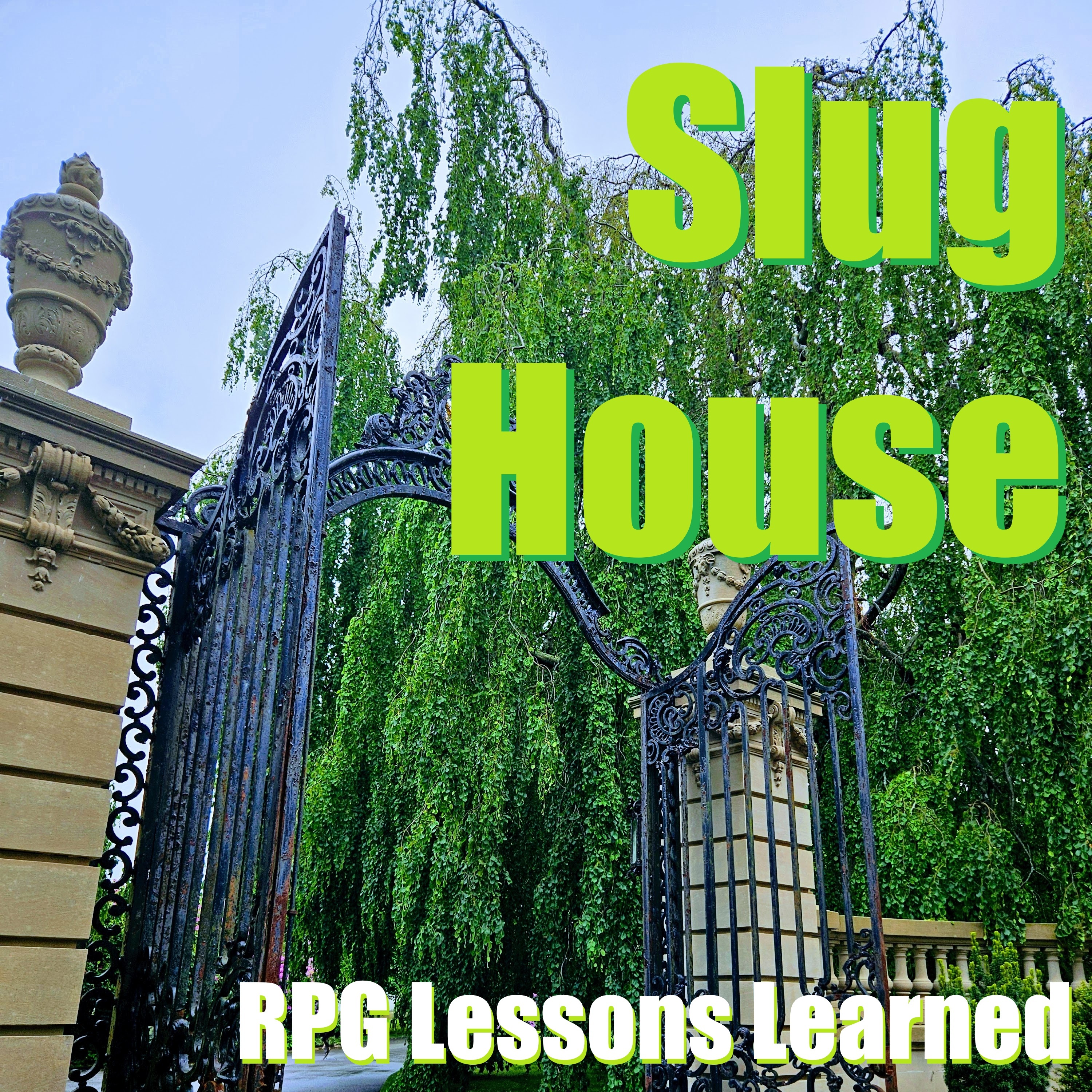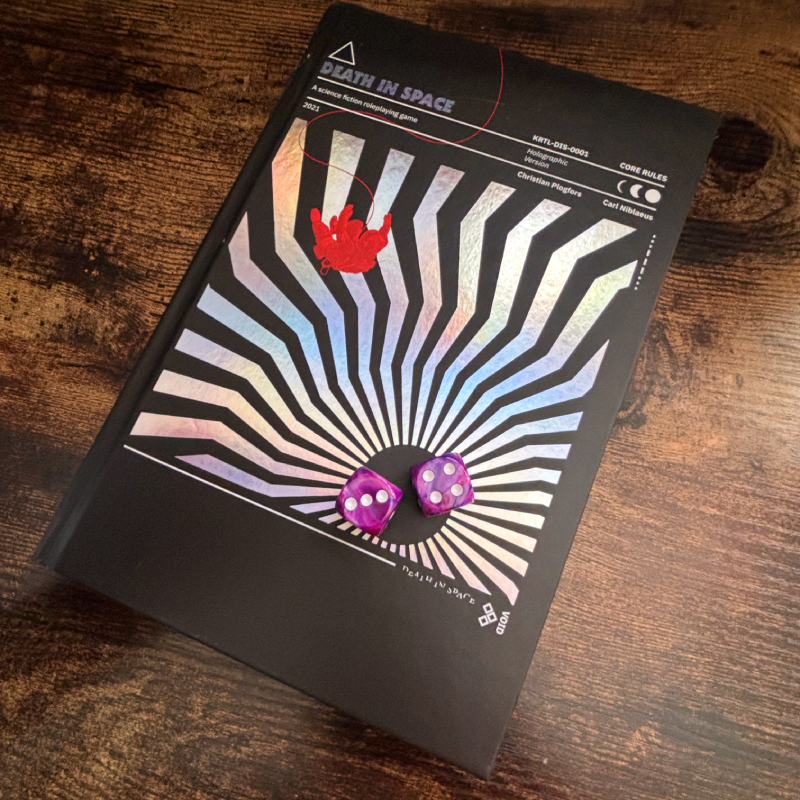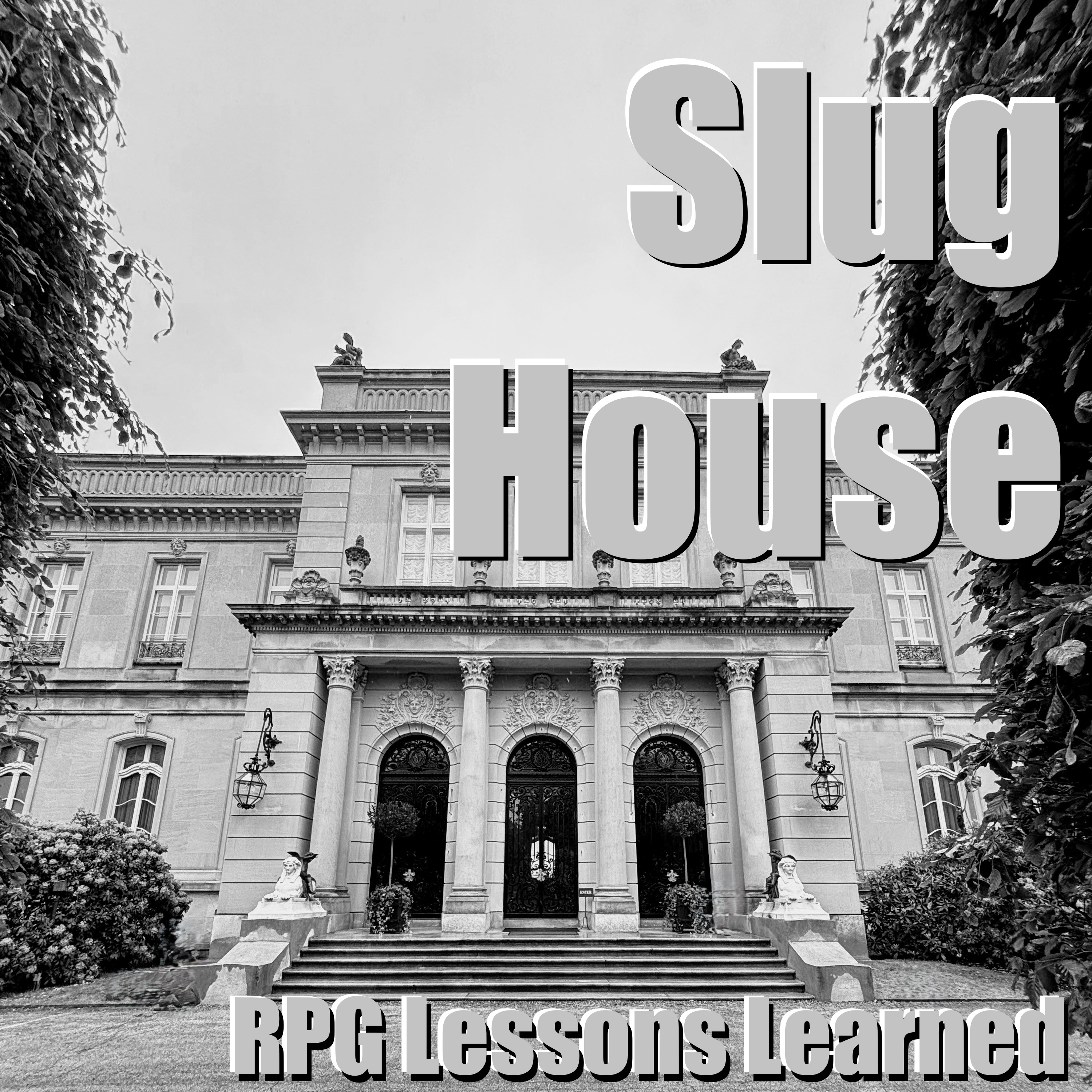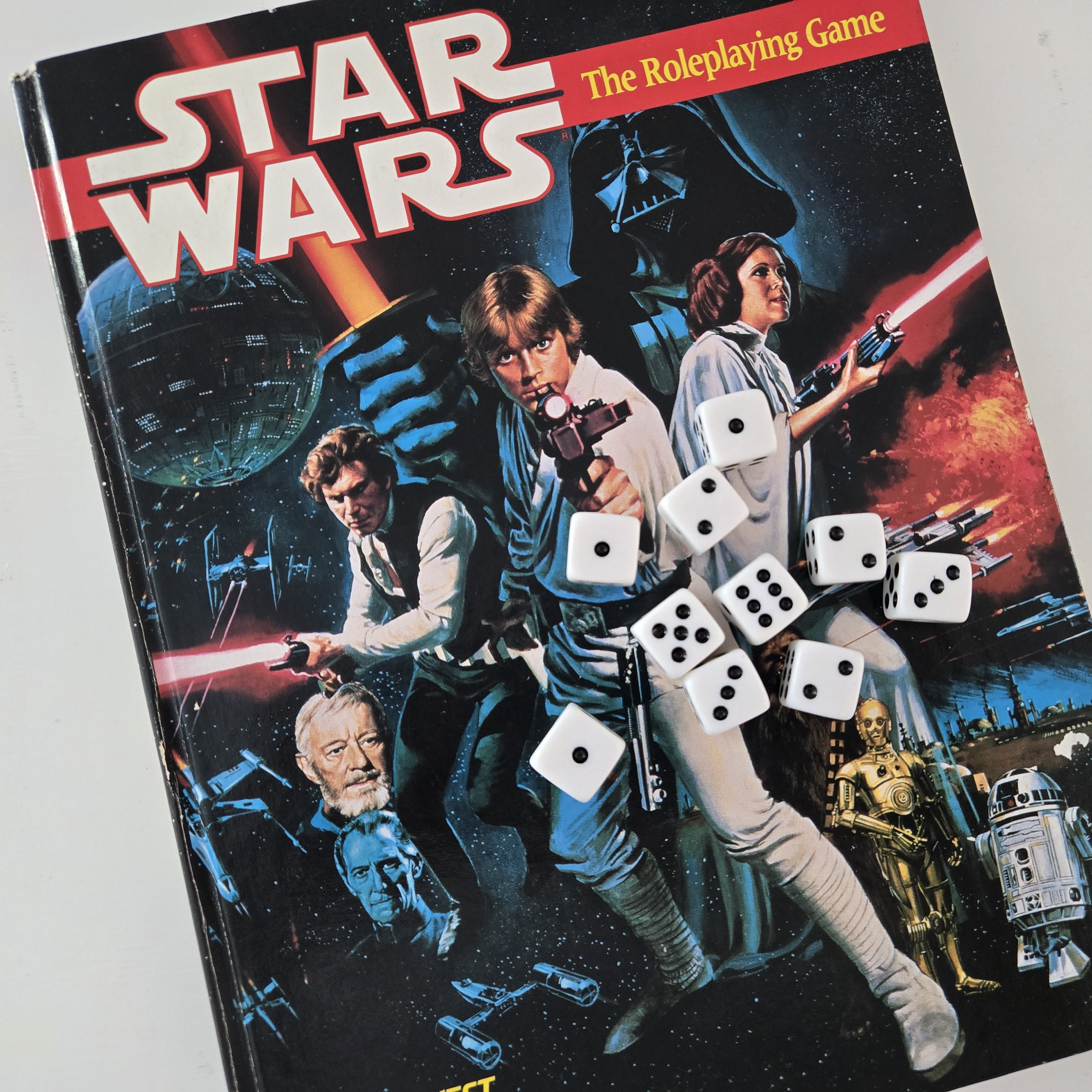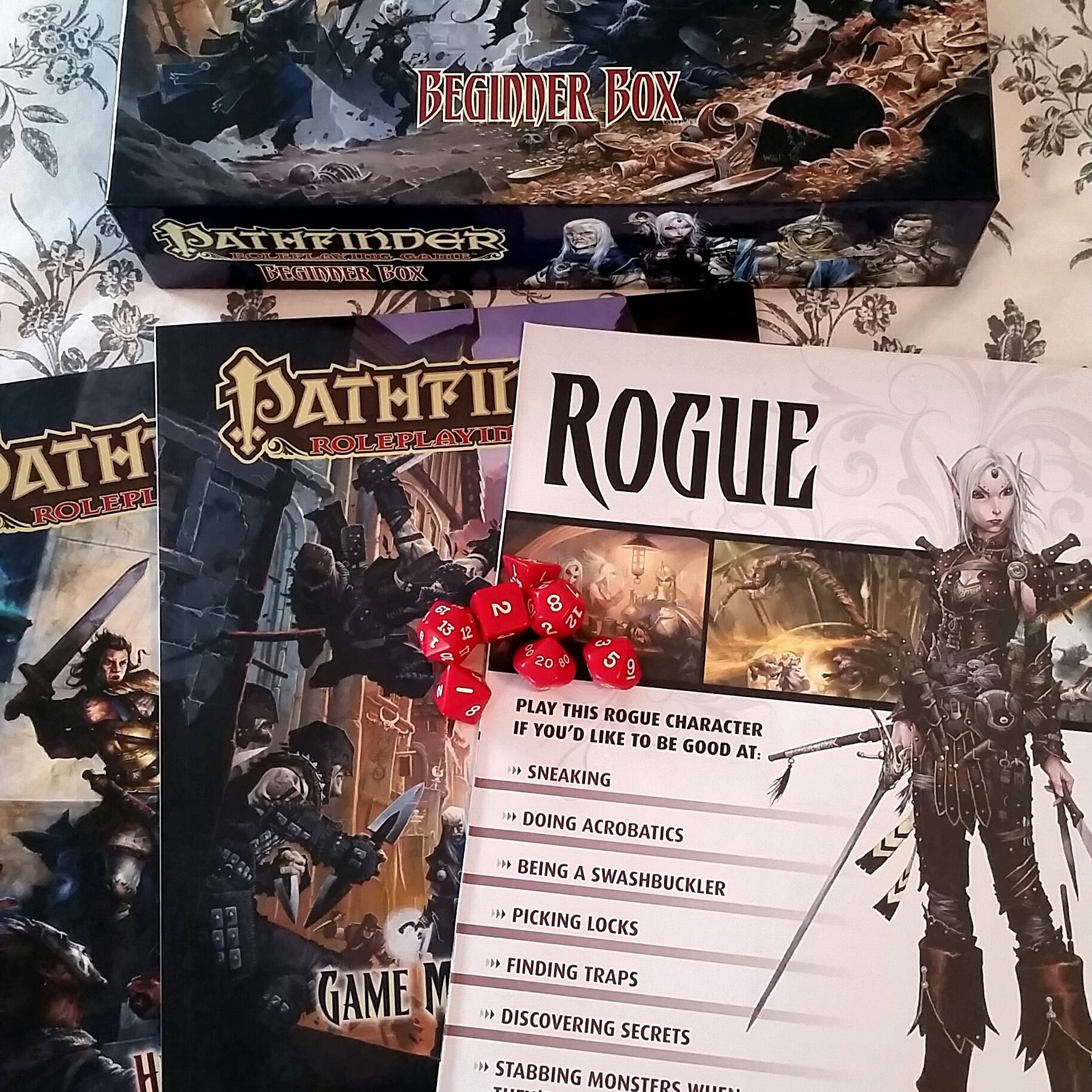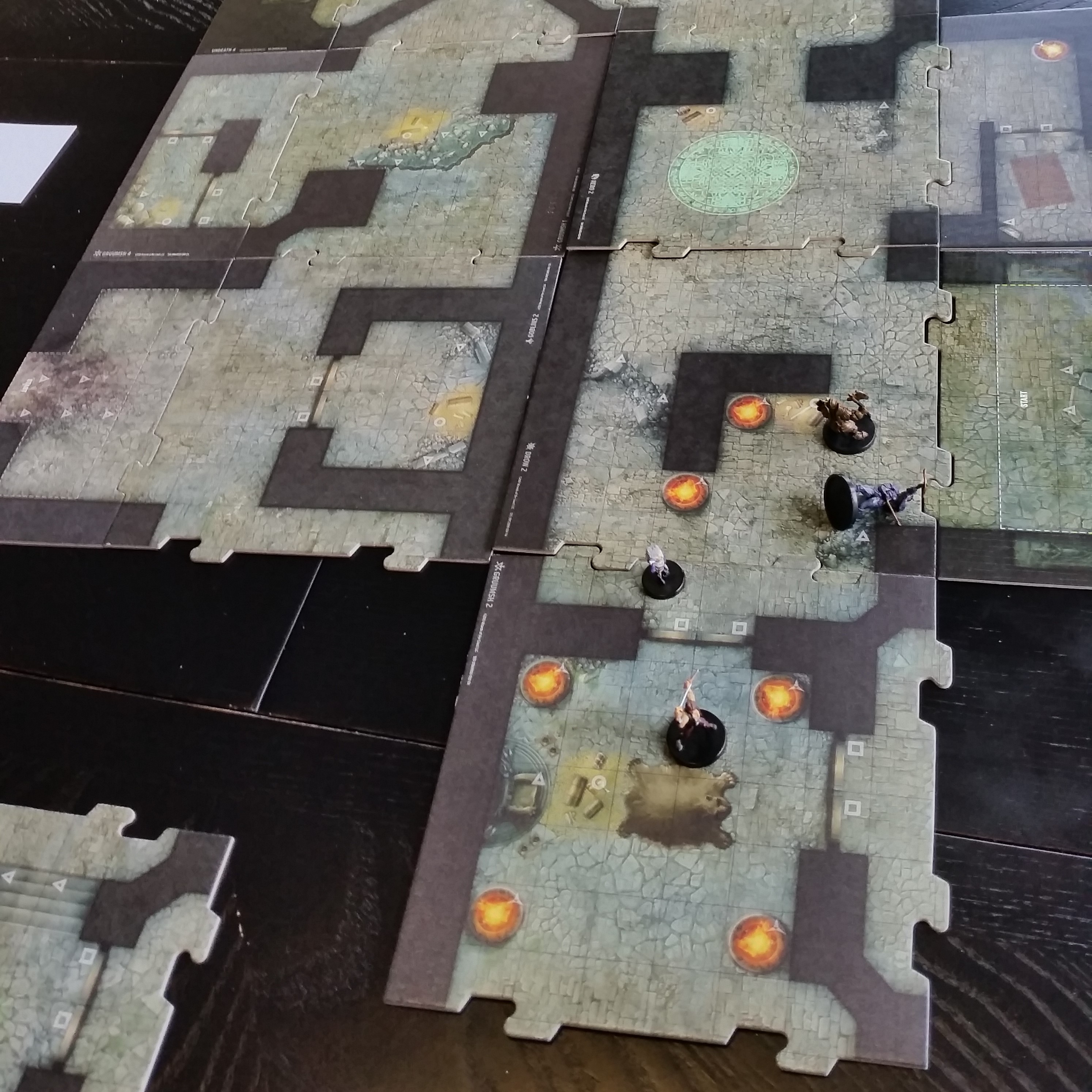[00:00:00] Speaker A: RPG Lessons Learned. When the game is over, when your players are gone, that's when lessons are learned.
Find us
[email protected].
email us at rpgllpodcastmail.com and find us on BlueSkyPGL.
[00:00:24] Speaker B: Hello, everybody, and welcome to another brand new episode of RPG Lessons Learned. I'm Tanner, your co host, and I'm here with Dusty, your main host. Dusty, what's going on, man?
[00:00:34] Speaker A: Tanner, we just finished, uh, session one of what seems to me like a mega dungeon, but it's probably just a regular sized dungeon.
[00:00:44] Speaker B: Yeah. Yeah. So I'm not going to name this adventure because the name of the adventure is a spoiler. However, if you look in the episode description, you'll find the name of this adventure on where to buy it and all that good stuff.
So, basic premise is that, um, you're exploring the mansion of a wizard who is no longer living in the mansion. Basically, that's all we have to say about it so far. I think that's kind of all you learned so far.
[00:01:06] Speaker A: Right. I think that also describes so many adventures that I've read and played over the years.
[00:01:12] Speaker B: Yeah. And it's just a good formula.
[00:01:13] Speaker A: Yeah, it is. It really is.
We, uh, should say, by the way, when you say it's a spoiler, what you mean is it's a spoiler to be.
[00:01:20] Speaker B: Yes.
[00:01:20] Speaker A: Like, if you're listening to this episode, we don't care about spoiling you. Um, but I don't want to be spoiled, so I don't want Tanner to name the dungeon in this episode.
[00:01:28] Speaker B: Yeah, the name of this dungeon is a great name, but it directly spoils what happens. So, like, it's like watching a horror movie and it's called, like, Jim is the killer, or like Killer Jim or something. You can go into it and be like, yeah, I'm ready for this. But I think it's better if the. If you figure out what the dungeon's about, as we.
[00:01:46] Speaker A: That's hilarious.
[00:01:47] Speaker B: Yeah.
[00:01:48] Speaker A: All right, so we played this game in a system, an old school system, an OSR system of your own devising. Yeah. What is the name of that system?
[00:01:59] Speaker B: This system is very cleverly named the Tan hack because I'm Tanner and tan is kind of a color. And all the different hacks of the black hack. There's the black hack, there's the white hack, there's the macchiato hack, which is like black and white. That's getting a little too crazy for me. You know, I called this. I called this the black table hack at first because all of my in game things since I've been an adult have been played on this black IKEA table that I accidentally stole from IKEA for free.
And um, that's where all of our best games were. So I was calling it the Black Table hack, but I figured the tan hack kind of sets it apart and directly connects it to me.
[00:02:36] Speaker A: So I dig it. I dig the tan hack. So the tan hack, based on the black hack.
Uh, we actually started this session out, uh, rolling two characters. We talked about the lesson last time of hey, let's do these dungeon crawls differently. There's just the two of us playing, we keep running into TPKs. Let's not do that anymore. How can we be more intelligent? A, let's do Scarlet Heroes or B, let's play multiple characters. And today was Multiple Character Day. So we had to roll two back to back characters.
Um, I suppose I shouldn't have entered that because I'm the one critiquing your system saying I think character creation was lovely and fun. I would have liked a character sheet in the rules.
[00:03:19] Speaker B: Mhm.
[00:03:19] Speaker A: Which we already talked about.
[00:03:21] Speaker B: I'll send you one. I've got a PDF, but it's not a form fillable one, so you might have to print it out and get the pencils out.
[00:03:27] Speaker A: All good.
But I terribly enjoyed it because it's my favorite thing where I roll dice to learn who the character is. And the story of, for example, my mage, when we rolled up that he had a background as a guard, it's like all of a sudden he became a pensioner. Why was his strength so low? Because he is stooped and infirm with old age. And that's why he started expanding the powers of his mind.
And a former guard is not a backstory for a mage I ever would have thought of. I love rolling dice in character creation.
[00:03:59] Speaker B: Yeah, you're starting the story of the game before the game starts. It's awesome. Rolling dice. I think I had you roll for a random personality trait for each of them. Um, I don't. Those haven't really come up yet because it's an OSR game and personality doesn't often apply.
[00:04:17] Speaker A: You know, it should have.
[00:04:19] Speaker B: No.
[00:04:19] Speaker A: What?
[00:04:19] Speaker B: No, I'm gonna give you credit because you're rogue, you roll the ruthless and you slit some troglodyte throats.
[00:04:24] Speaker A: But I didn't leave my compatriot when he was down. And I should have if I was role playing Ruthless.
[00:04:30] Speaker B: Gotcha. Well, you know what, we always like randomly generating stuff. I think if there is a table involved in character creation, we both want to roll on it because it's fun. You know, I think it's just fun. It's like the same fun as the GM of rolling on a random encounter table. It's like, ooh, what's the story going to be? And it's a surprise to both of us.
[00:04:48] Speaker A: I was consciously role playing ruthless when I turned to my magic user and said magic missile. That guy. With regard to the gargoyle, yes. Uh, that was me consciously thinking I'm ruthless.
[00:05:00] Speaker B: Yeah, yeah. Um, but yeah, so it's pretty straightforward. It's a roll under system. Once we get started.
Um, the classes and the magic system are of my. My, um, I stole a lot of stuff from Nave and buy this axe I hack, which is another Black hack derivative thing. So I'm not going to be selling this game. Don't look for it players because there's just enough copy and pasted from other things that I don't even want to get involved in trying to disentangle that. But it's a perfect Frankenstein for the way that I play at my tables.
[00:05:35] Speaker A: What is it about the OSR that makes us all want to make our own systems?
[00:05:39] Speaker B: That's such a good question. I think it's like they're all just different enough, uh, that it's very easy to be like, so they're all in the same genre. Right. But they're all so different enough that you can be like, oh, I like the magic from this, I like the character creation from this, I like the equipment rules and the carrying capacity from this. And it all works is the biggest thing. Like if I wanted to make a hybrid between D&D 4th Edition and Legend of the Five Rings, 4th Edition and Robotech, for whatever reason, I don't know what that game would look like. But those are. Rules are not compatible with each other. You'd have to put a lot of hot glue to stick those parts together.
And in osr, uh, games it kind of just works.
[00:06:23] Speaker A: I suppose my platonic ideal of game would be 90% the basic fantasy role playing game and 10% castles and crusades.
[00:06:33] Speaker B: Interesting.
[00:06:35] Speaker A: I would whack the saving throws from basic fantasy because I always thought like death ray and you know, wand staves, etc. I just always thought the saving throws were kind of goofy. Yeah, I love the Castles and Crusades. Just save with your attribute. And I love the idea of the prime requisite and the target numbers of 12 for a prime requisite or 18 for anything else. I Love that from the Siege Engine, from Castles and Crusades. So, yeah, every one of us, we play these games, they're all D20 based. They're all so similar, but yet a little bit different.
So it's so easy to say, oh, man, like a smorgasbord. I want this from this and this from this and this from this. Maybe that's why we do it.
[00:07:13] Speaker B: I would love to challenge you in the New Year Dusty to hack together your favorite Frankenstein. And we can compare and contrast. That'd be fun.
[00:07:21] Speaker A: All right, mission accepted.
[00:07:23] Speaker B: All right, long term goal. Um, one other thing I love about the black hack and that I stole for my tan hack is that the GM never rolls dice to figure out what happens.
Basically, if there's something that's going to be random, I just kind of decide what happens following the rules of logic and cause and effect. And if something affects the player, whether that's an attack roll or a damage roll or anything like that, it falls on the player to roll it. So how do you feel about that? Is it too much rolling, especially when you're playing two characters?
[00:07:53] Speaker A: Um, if it were at a table, I would love it. I'd be fine with it because I grab a dice, a roll of dice, no big deal. In roll 20, I will pause next time and create some macros. Although even the macro like I need to do the plus one and the anyway, copying and pasting slash R space 20 plus one or slash R space 20 plus three for the gargoyle fight.
Um, it's just not as fun as tactile rolling dice.
[00:08:21] Speaker B: Yeah, and to be fair, I did design this for.
I mean, I don't think you can really design something too differently, you know, But I envisioned this being at a table more than I envisioned this being on Rule 20. I guess I'll say.
[00:08:33] Speaker A: I've never talked much about my technical writer education. I talk a lot about, you know, work and my job.
But, uh, I had some excellent teachers. I won't name them. That feels weird, but, uh, we'll call her Professor Eva B at my alma mater.
Banged two acronyms into my head. One is about document design. It's crap. Contrast, repetition, alignment and proximity as far as how to design a document. But the other one is pack, purpose, audience and context. And just like a document, like before you write a document, you need to think about what's the purpose of this document? Who's the audience? Who am I writing it for? And then context is a neat one. It's a tricky one. Context basically says, hey, if you're writing a document to a car mechanic, that's a quick reference guide for swapping out some unique, interesting brake pads, then the context of the document will be dirty, oily, lots of brake dust situation. It should probably be on a laminated card.
[00:09:35] Speaker B: Interesting.
[00:09:36] Speaker A: If it's a novel, the context is probably a book or an E book. If it's on the Internet, the context is a website or maybe a mobile site. And you got to think, anyway, that's the context. And I think taking into account the context of. Are you playing in person or online?
There are systems that work wonderfully in person, but not online, and vice versa, I think. What do you think?
[00:09:57] Speaker B: I think that's true. Um, the roll and keep system from Legend of the Five Rings, fourth Edition and previous is definitely something that I like better as a math problem that you can put into Rule 20 and it spits out a number rather than having to do the math at the table. Um, that being said, I don't know, like, would this have been better if instead of a PDF, I sent you a webpage that had all the different sections of this game on it?
[00:10:24] Speaker A: I didn't find myself referring to the PDF that much.
[00:10:26] Speaker B: That's true.
[00:10:27] Speaker A: I found myself referring to my character sheet. But I made something very, uh, quickly in Google Sheets that worked perfectly for that. No, for me, it wasn't the referencing the rules, it wasn't the character sheet. It was really just the die rolls.
[00:10:40] Speaker B: My dream for this system. And if everything works out, what I'm going to do is get this system laid out professionally by a friend of mine. She's a graphic designer. And I'm going to get these printed as zines and I'm going to print, I don't know, 30 copies of this and just have them ready to go for any group. I want to play with the ideal.
[00:11:01] Speaker A: Character sheet for me in roll 20 for this. Sorry, acknowledging that statement. I wasn't just waiting for my turn to talk. That'd be awesome. In the spirit of you making this, like, super professional, if there's some way to, like, modify roll 20 and, like, build your own character sheet for each one of the attributes, if you could just have a roll button for it and then a roll plus one, a roll plus two, a roll plus three and a roll plus four. Because I don't imagine you'd fight too many monsters that are more than three hit die greater than you or four hit die greater than you, you can.
[00:11:29] Speaker B: Do those all with macros in roll 20. Uh, you can have it Say, like, I press this button, and it rolls a D20, and then it puts a text box and says, hey, do you want to add anything to this roll? And then it just rolls for you.
So I will get that ready for you next time. I already have it set up for my Lancer game in roll 20, so I will just copy and paste it.
[00:11:49] Speaker A: Perfect.
[00:11:50] Speaker B: That being said, I'm a paid member of roll 20. I give them, like, five bucks a month for extra storage space and campaigns and stuff and some tools.
And there is a way to create custom character sheets in roll 20. However, you need to know CSS.
And I got, like, halfway into teaching myself that and realized that is only for the people who pay more than me.
Like, 15 bucks a month for that privilege.
[00:12:17] Speaker A: What a bummer.
[00:12:18] Speaker B: Yeah. So I. Rule 20 has got to make money. I'm not mad at them about it, but I will say I did explore that, and I will continue to explore it.
[00:12:25] Speaker A: That's fair. Shall we do the thing where we numerically rate the session? And I'll propose a new way to do that. Shall we type in the chat bar?
[00:12:34] Speaker B: Do you think you. You influenced me too much? No.
[00:12:37] Speaker A: Um, I don't know. I just don't want us to feel like we've influenced each other.
[00:12:40] Speaker B: Okay, I'm gonna.
[00:12:41] Speaker A: How do you feel about decimal points when people do ratings out of 10? Do you find it cowardly?
[00:12:45] Speaker B: I do. Yeah. I'll be honest.
[00:12:47] Speaker A: All right, fair enough. No decimal points.
[00:12:49] Speaker B: Three, two, one, go. Okay. Dusty gave it a six. I gave it a five.
Um, I thought it was a perfectly cromulent session. I think you could tell that I was kind of scrambling to have all the reference pieces that I needed to make it run smoothly. I think that you didn't get into the part of the dungeon that is really thematic yet.
So I think if this kind of just felt like a fun house with a troglodyte in a room so far, I would understand that. But I'd love to hear what you think.
[00:13:24] Speaker A: Um, my six, I think. I think anyone who observed the session or took part in the session would probably rate it, like, certainly not a 10, not a 9, not an 8, because it's early days.
I don't know about you, man. And I think session zero is necessary. I'm not knocking session zero, but we have to admit, it's the most boring part of the campaign, in my opinion.
[00:13:45] Speaker B: Um, yeah, for. For this type of game, I would agree.
[00:13:48] Speaker A: Yep. So, I mean, rolling the character. Like, I had fun with character creation, but not as much fun as, like, a great session and then kind of figuring out how to get into the dungeon. Um, I always love it when we start inside a dungeon, figuring out how to get inside the dungeon, and there's guards out front. I don't want to learn with the guards. Don't want to kill all the guards. I don't want to mass people in town. I'm in a big town.
That feels weird. Um, just figuring out how to engage. It's like, you know what it's like. It's like meeting someone really interesting that you don't want to get off on the wrong foot with. That's what a good dungeon is like. It's like, ooh, here's a person I think is interesting. I'd like to start a conversation, and I don't want to screw up the approach.
So if I start off this really cool dungeon by trying to murder every single guard out front that wants to stop me from getting in, and I create problems for myself in the city and I need to flee, I've ruined this dungeon for myself. If I say the wrong thing to this person, I've ruined that conversation for myself. And I just felt all that anxiety.
[00:14:46] Speaker B: Interesting. The anxiety is something that we've talked about before, especially in relationship to a puzzle dungeon that we did with, uh, Aberrant Reflections. If you recall that you felt a lot of pressure from me as the tutor looking at your homework as you were trying to fill out your times tables with that dunge. So I think that's interesting. Um, I agree that I think this dungeon could have used a more straightforward entrance. This dungeon is designed. Talking about context, again, for technical writing. This dungeon is designed to be a location that you can plop in any urban area in your campaign.
And it says, also, there's no reason that this mansion couldn't be in the wilderness too, if you really cared about it. However, this was the first session of our game, so I shouldn't have made you get to it. I think it would have been interesting if you had been, like, kidnapped by troglodytes and you wake up in the basement or something like that. Like, would that have been a better option as far as getting you engaged right away, you think?
[00:15:48] Speaker A: Only if, as a slight nod to the usable resources, the room also included one extra food source and one extra light source.
That way, I didn't just purely run out of food and light in the dungeon.
[00:16:02] Speaker B: How do you feel about food and light in dungeons?
[00:16:04] Speaker A: Um, I like the resource management. I like the fact that I have very limited slots to carry inventory, so I'm not going to be like carrying out bags and bags of treasure. I like having to think about that. It feels realistic. I say realistic. It gives the game verisimilitude. It gives the game. Yeah. It's plausible and it gives it a sense of trade offs that I really enjoy. I enjoy trade offs. I don't mind it at all. I would mind it if it's like, you've been kidding. You're in the middle of a dungeon and you have a food supply with a usage of 6. And if you run out.
[00:16:38] Speaker B: Yeah. So what happens when you run out of food in my system is that if I require you to eat food from a random role in the dungeon and you don't have food to eat, all that happens is that you take like one or two points of damage.
So it. Maybe I should have made that more clear that you're not going to starve to death instantly if you run out of food.
That being said, one of my. So the reason I use the Black hack is I cut my teeth on the system running the Hot Springs island campaign, which is incredibly fabulous. One of the things that made that so great is that that is a setting that's full of weird food. And I'm not joking. Like, some of the monsters are like big habanero peppers and stuff like that. And one thing that my players loved was, was like killing a plant monster, like, delicious in dungeon and then like trying to make soup out of it or finding gross elven food that's been preserved in time and you pull the orange crystals off of it and there's a disgusting, like, chicken roast underneath it and being like, well, we need food, so we're going to take this chicken roast. And my players found that fun.
So do you think that, um. I'm wondering if that fun house feeling that I intended is coming across more like playing Resident Evil 2 for you, where you have three bullets and a med kit and a key and you have two item slots and you're like, well, do I take the bullets or the medicine? You know what I mean?
[00:18:07] Speaker A: That is how I'm feeling.
[00:18:08] Speaker B: Okay. Is that a good feeling? I mean, I like Resident Evil 2.
[00:18:11] Speaker A: But yeah, it actually, it is. I'm, um. I'm only voicing these objections to the idea of if I'd started in the middle of the dungeon. So I think starting the middle dungeon would be perfect if in the room there's an unused torch along with the light source in my inventory. So I've Got a backup light source and in the room with me, there's some kind of food source. If that was the case, then I think starting in the dungeon would be fun and interesting. I think alternatively, having the courtyard be full of guards and sounds to get in the house just felt like, well, if I, uh, if I screw this up and piss all these guards off and I'm in the middle of a huge city, but that's it, That's a wrap. I'm not getting in this dungeon.
[00:18:53] Speaker B: I should have made it more clear that the guards were kind of thugs and hired a muscle and they weren't the city guard.
[00:18:59] Speaker A: Well, I just took it as they were. What's his name? Scarce. The. The wizard's guards.
[00:19:03] Speaker B: They were. Until he disappeared. Yeah. So, yeah, I think, um, the entrance to this dungeon, whether that's as written or whether that's how I ran it, could have used some work. I think we can agree on that.
[00:19:14] Speaker A: Yep. But having rated it a six, um, that is, it's. It's like the first act of a movie, man. None of the cool stuff happens in the first act. Yeah, we're setting it up, so I am eager to continue.
[00:19:27] Speaker B: I think it's really interesting that you went to the basement first because the game seems written as to you going to the basement last. So I'm curious as to see how that. Now that you have access to it and have kind of unlocked the, the secret door that lets you get back there. I'm curious to see how that pans out in the future.
[00:19:44] Speaker A: Oh, that's interesting. Do you have any questions for me other than the ones you've asked about this dungeon that I don't know that much about yet?
[00:19:52] Speaker B: Not yet, except I killed you with a random encounter. Do you want to talk about that?
[00:19:57] Speaker A: Yeah, that seems to happen. Um, we learned a lesson last time of let me be two characters. But even then two spiders took me out, which I think is so beautifully osr. As we discussed. If I would have properly role played Ruthless, um, one of my characters could have made it out and that would have been interesting. I'm not complaining about difficulty when I say this.
Um, I don't know where this comes from, appendix N or whatever. Gary Gygax's house rules. Even Gary started people out at level three.
[00:20:30] Speaker B: Interesting.
[00:20:31] Speaker A: I'm wondering if there's not an element of if there's only two players or two characters, should I start at level two or something like that, or does that make it too easy? I don't know. It didn't have the good feeling of Scarlet Heroes that we talked about, like, where I'm investing my hit points. It didn't have that. It really felt like, oh, I just got hit for eight damage and I have four hit points.
[00:20:54] Speaker B: Yeah. I think the intent of the Black Hack is that you're supposed to invest your armor into hits.
And that's great. When you're playing a fighter wearing plate armor and you have four armor dice and you can take eight damage and be like, actually, GM M, I'm going to break one piece of my armor and I take no damage. Or if you have a shield or a helmet or something like that, which can also soak hits. I think you were playing a wizard with one armor die and a rogue with two armor die. So it didn't feel like a choice. It felt like, uh, I better do this or I'm dead.
[00:21:24] Speaker A: That's true.
[00:21:25] Speaker B: So maybe your rogue, uh, before we get back in the dungeon, can buy a helmet or a shield or something and maybe you can feel a little bit better about that.
[00:21:32] Speaker A: That's fair. It's not bad criticism at all.
[00:21:35] Speaker B: How do you feel about the way we handled the tpk?
[00:21:39] Speaker A: Fine. Um, I love.
So what we did is we agreed that maybe these guys are dead and maybe not and that neither of us would decide. Because I think. I think if you decided, oh, you know what, they live, or I decided, you know what, can they please live? We would have felt like we were cheating ourselves.
[00:21:57] Speaker B: That's fair.
[00:21:59] Speaker A: But when we said, hey, let's make it a 50, 50 dice roll and then both characters pass the dice roll that it feels like we earned that.
[00:22:09] Speaker B: It feels more real. Yeah.
[00:22:11] Speaker A: Yes.
[00:22:11] Speaker B: And so basically we decided in the effort of continuing and not stopping three rooms into this dungeon that took me several hours to prepare and throwing it away forever, we would decide to keep playing. But, uh, your two characters went back to town because we were. Because this does take place in an urban setting and you bought more food and you bought more gear, as much as you could possibly carry. And we're gonna head back into the dungeon. Um, shopping gets maligned a lot in role playing games. I feel like you see horror stories of GMs being like, oh, my. Players want to role play every dagger and arrow that they buy at the Blacksmith. I've never felt that way, but maybe I've just never had players who feel that way about shopping and they all understand that it's a means to get more stuff to play the game again.
[00:22:59] Speaker A: You know, I felt that way. Not today. Not Today, uh, Chris, if you still listen, I'm about to make fun of you. So when I GM'd, and Chris would buy stuff m or be offered a reward by some npc, he would really try to negotiate the money every single time. He haggled with every NPC for every copper piece. Even when he had thousands of gold pieces, he was haggling for copper pieces.
He was, um, haggling for. You can only give us 50 gold to save your daughter. Come on, it's your daughter. You can't do better than that. And it's like, so that's.
[00:23:37] Speaker B: That's kind of fun, though, you gotta admit.
[00:23:39] Speaker A: Sure, it is for a while. Uh, but then you play, you know, 30 or 40 sessions with the guy, and I refuse to haggle. You were like, you can haggle with your charisma. And I'm like, no, I'm good.
[00:23:50] Speaker B: Okay. That's fine with me. I think that shopping should be precisely as interesting as everybody at the table finds it to be. And me and you see it as a perfunctory thing that lets you get stuff to get back into the dungeon. And I think that's great. I think if you're a GM who likes to haggle and you got a player that likes to haggle and role play, I can see how rich role playing encounters can truly come from that.
[00:24:13] Speaker A: Sure.
[00:24:14] Speaker B: Um, if you have one person who's interested and one person that's not, that's when a conversation needs to be had, I think.
[00:24:22] Speaker A: Yep. And again, Chris, ah, I'm making fun of you. I love you, man, wherever you are. But, uh, I think it's great. And then it's 30 sessions of it, and you're like, yeah, let's, uh, let's not do that anymore. You have thousands of gold pieces. Who cares?
[00:24:36] Speaker B: Yeah. And usually a lot of times it's easier for those players to feel the peer pressure from their other players and be like, come on, dude. Like, let's. Let's get on with it. It's harder as a gm. Um, I feel. I feel like it's more of a dick move to do that as a gm. Somehow I just feel like shopping such.
[00:24:54] Speaker A: A big part of life because we.
[00:24:56] Speaker B: Live in this freaking capitalist society. Dusty too.
[00:24:59] Speaker A: So I don't want to shop in my escapism.
[00:25:01] Speaker B: That's fair.
[00:25:02] Speaker A: But that's. That's me again. If you feel personally attacked, don't. If you, if you walk up to me at a game convention and we're like, God, I love shopping in D and D I'd be like, I get it. I'd love to buy a magic sword.
I'd love to buy a lightsaber. I'd love to go shopping in the Star wars universe. Like, I'm, um, not knocking your fun. I just don't want to do it at my game table. That's it.
[00:25:20] Speaker B: Shopkeepers can also be classically fun NPC types, too. Like, I'm thinking about the guy who sold the lamp in Aladdin, you know? Or the guy who gives John Wick all of his guns and his tuxedo. Like, those are good stock characters. So I respect the shopper enjoyers. I can tell that for me and Dusty, that's not why we're here. So we, uh, we made it brief and we moved on.
[00:25:44] Speaker A: Good to be aligned on that.
Yeah.
So we talked briefly about you never rolling dice, and you asked me how I felt about it. Um, how do you feel about it?
[00:25:53] Speaker B: Great. I think that as the gm, I have so many different things I'm worried about. Like, as you're exploring, what I'm doing is I'm referencing what room you're in to the key. Skimming the key, giving you the important parts, figuring out if there's monsters in there. If there's not, I'm rolling a random encounter die to see what happens. And then I'm also listening to what you're saying and engaging in the room with. And all of those things take up 85% of my bandwidth capacity. At least tonight, you know, some day we. Everyone's got hot days and cold days. As far as multitasking, right? But I'm already multitasking so much, the last thing I want to do is look and be like, does this ghoul have a plus two to hit or a plus three to hit? And it's like, it doesn't matter. Dusty, roll your strength. This ghoul is trying to grab you, and you tell me if it succeeds or fails. You know, it's not a game of Mother May. I did a 14 hit. No, you say, oh, I did it. Or, uh, I definitely didn't do it. I'm all in favor of asymmetric systems in that regard.
[00:26:57] Speaker A: I like not rolling as the GM as well. One last question for you. You made a comment during the game about juggling a lot of resources all at once. Do you want to talk about that for a second?
[00:27:09] Speaker B: Yeah. It's kind of similar to what I just said. So I have two monitors, right? And this is what it's like as I play one half of One monitor. So a quarter of my screen is just Dusty's big glorious head.
[00:27:21] Speaker A: It's great.
[00:27:22] Speaker B: The second half of that monitor is roll 20 where we have the map and the dice rolls. One half of my other monitor is my custom system and the other half of that monitor is the adventure in the map. And I have to flip between those two tabs.
So I just have a lot of real estate. I guess I could make your big head a little bit smaller, but I do this as a social exercise so I like seeing what you're engaged with and stuff like that. I think for next time I'm going to offload some stuff. And I do this for my lancer game too, which is very stat focused where I have everything that I need to reference stat wise for combat on a printout on my table, next to my keyboard on my desk.
So I think I just need to print out some, some quick reference stuff. That stuff that I always want to look at like the random encounter table or the dungeoneering rules and I want to have those front and center for me. So next time I will do that. There will be less flipping around and clicking between tabs and I'll be able to just look down and see what I have and um, keep the game rolling. Do you ever run into that when GMing that you feel like your eyeball real estate as far as what you have is like at a premium?
[00:28:40] Speaker A: Not in a long time. I think that's one of the lessons that I've successfully. I think that's why I came up with the 14 room dungeon. That way I can essentially have one dungeon entry and the key and the map are close enough in proximity and abstract enough that navigating between the key and the map are quite easy. Um, the last time I felt that way is when I was running published adventures in 4e.
[00:29:04] Speaker B: Interesting.
[00:29:04] Speaker A: That's when I felt like I had just way too much to refer to.
[00:29:07] Speaker B: I also remember feeling like this even worse in person when I was running five E games and I would have my notes, my scratch paper monster manual, a 400 page book that I'm flipping between for monster entries and everything else that I would need. And I have to fit it all behind a screen like a DM screen at a physical table. That is the number one thing that got me out of playing 5e because it, during my last 5e game that I ran, loved the game, love my players.
We had an average of like 10 books on the table at all times. And I had to have books on the ground next to my chair for me to, like, grab for when I needed to swap them out. That's ridiculous. And, like, that is.
This isn't that bad because, uh, it's more of, like, just reference things I'm flipping through. Like a, uh, creature stat block fits in a sentence in this system. So it's a different kind of problem, but one of the same flavor in that I have a hard time organizing myself. And I think I just need to work on that better because it's one of those things that works from the inside out. If I'm more organized, I'm more engaged with what's going on. You're going to be more engaged with what's going on. It's going to be a better game.
[00:30:21] Speaker A: You know, one of the biggest dilemmas in gaming for me, and this happened just the other day. A M coworker said, hey, my daughter wants to play D and D. You talk about D and D. What should I get?
And instantly, I'm at war with myself. I'm like, well, you should get Castles.
[00:30:35] Speaker B: And Crusades, third Edition.
[00:30:39] Speaker A: Exactly. That's what I want to say. But, um, but. But instead I'm like, well, all of your kids friends are going to want to play 5e.
So here's. You should get the Dragons of Stormwreck Isle, and you should get the Essentials Kit. They're very affordable. They come with dice, they come with regenerated characters. You can get into the game immediately. And I. And I know I'm setting someone up for the complexity of 5e when I would really just like to say, here's. Here's basicfantasy.org for the BA. And you can get the book at cost. God. You know, here's Shadow Dark.
[00:31:12] Speaker B: Yeah.
[00:31:13] Speaker A: Yeah. And I would love to say that I don't. I feel like recommending boutique systems comes off as snobby.
[00:31:19] Speaker B: It does. I. I have to recap, like, me and you talking about stuff. Uh, if you're like, hey, Tanner, I want to run a horror thing, I could be like, ooh, look at this game I read about on Reddit two weeks ago that just came out. It's on an itch page, and, uh, uh, it's barely accessible. Here you go. And you. Because we're both pervert hobbyists, you would check that out to the average Joe Schmo. He is not going to itch IO for anything, I promise you. You have to give them the box. And as much as I hate giving Wizards of the coast money, like, those boxes are good.
They should include a pamphlet of if you like this, play these other systems.
But gu. Such a snobby thing, you know what I mean? Like, you'll run into that with anything. If you go online and you're like, I'm getting into model trains. I bought this at my hobby shop. You're going to get like 35 insane perverts who are going to tell you that you bought the wrong diesel locomotive for your train set. And you should. You're wasting your money and time. You should do this. It's just part of the hobby, you know what I mean? Like the elitism and then the trying to reel it in and be like, no, it's fine.
[00:32:28] Speaker A: You should just get the most popular thing. That's if you're gonna try soda for the first time. As much as I love Pepsi, I guess you should probably have a Coke.
[00:32:37] Speaker B: And this episode has been sponsored by Coca Cola. Now, uh, could you imagine if we got Coke money? Oh, my God. Anyway, so, lessons learned. I got some stuff I got to work on organization wise for next time. I don't think you have anything that you need to do differently except maybe play your guy ruthless if you feel like you want him to be ruthless.
[00:32:56] Speaker A: Yeah, I need to role play him a little differently, but yes. Um, other than that, I feel good.
[00:32:59] Speaker B: Okay, next time, let's both try and get a 7 out of 10 out of our time. That's what I'll aim for.
[00:33:04] Speaker A: Sounds good.
[00:33:05] Speaker B: Yeah. So, I mean, if this sounds familiar, these are problems. Not problems, but these are speed bumps that I've been dealing with for a long time, dear listener. So if you're running into him too, stuff happens. But hopefully you're with a, uh, great understanding set of players or player like Dusty, and we can, uh, get together again. And I think you'll like the dungeon a little bit more next time.
[00:33:28] Speaker A: I'm, uh, looking forward to it. Thank you for listening.
People call them reviews, postmortems, retrospectives.
We call them lessons learned, and we're sharing ours with you.
